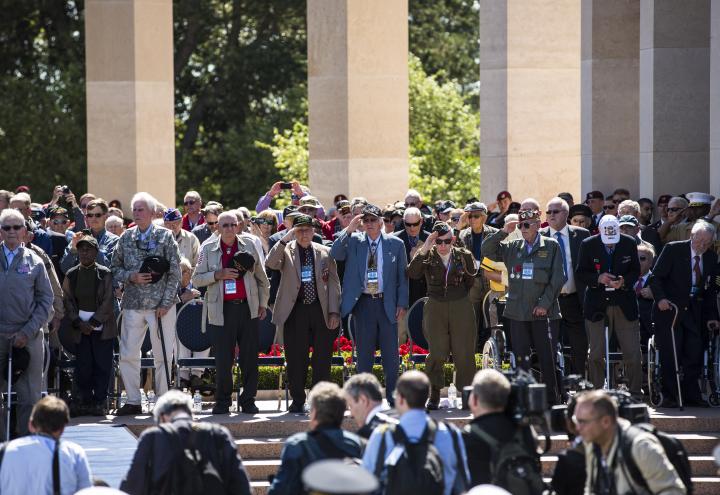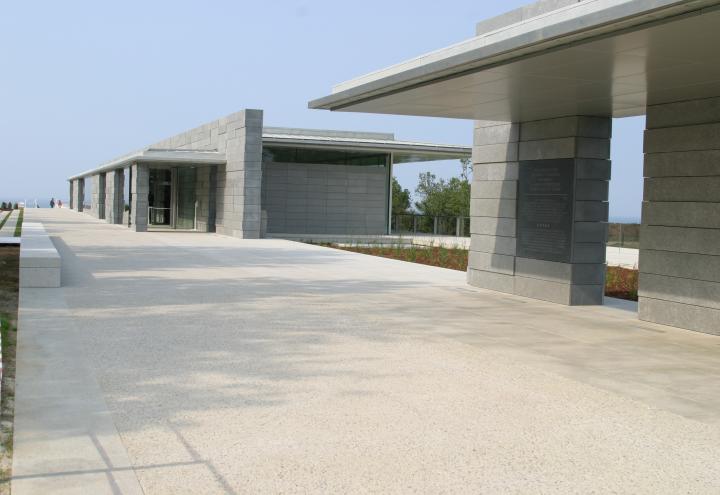The memorial area at Oise-Aisne American Cemetery is currently undergoing maintenance work. Visitors will still have full access to the chapel, and memorial area, but due to scaffolding and other equipment needed for the work the visual aspect of the area will be impacted during this time.
Beginning on November 16, 2015 the visitor building at Henri-Chapelle American Cemetery will be closed due to major renovation work.
Horticulture work along with the resurfacing of some pathways and roadways is currently underway at Cambridge American Cemetery. While the work does require areas to be temporarily cordoned off to ensure visitor safety, impact to the visitor is mostly visual.

National History Day (NHD), the American Battle Monuments Commission (ABMC), and the Roy Rosenzweig Center for History and New Media is launching a new, free digital resource for teachers on Veterans Day: www.ABMCeducation.org.

This Veterans Day Americans around the world will honor their fellow citizens who have served their country. The American Battle Monuments Commission (ABMC) offers ten ways you can show your appreciation this November 11th.

he doughboys of World War I readily wore the American uniform, prepared to fight for the freedom of people they had never met. These doughboys came from big cities and farms. They left behind wives and children. They worked at sawmills, law practices and factories.

The entire lower level of the Normandy Visitor Center will be closed Saturday, January 9, 2016 through Wednesday, January 22, 2016 due to reconditioning of the floors. During this closure period, there will be no access to the lower level.

On September 26, 1918 American forces began fighting in what would become known as the Meuse-Argonne Offensive of World War I. This 47-day battle would prove to be one of the most significant in American history.

ABMC manages 27 monuments, memorials and markers around the globe, each necessitating its own unique maintenance plan to ensure these sites continue to meet the standards set by the agency. While some markers are modest in size, constituting no more than a few square feet, others, such as t
